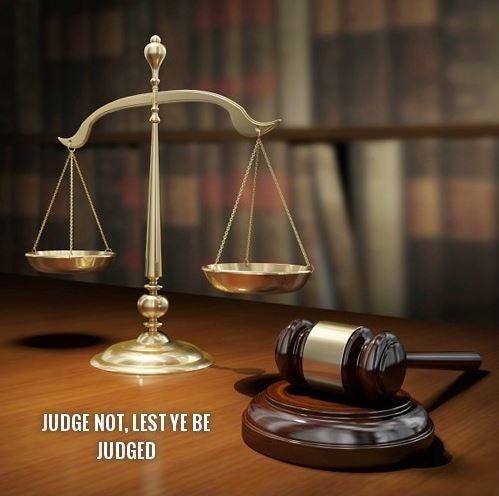“Judge Not” – But What Did Jesus Really Mean?
Jesus warned against hypocrisy—not discernment. So why do we act like all judgment is off-limits?
It’s one of the most quoted verses in the Bible, and one of the most misunderstood:
“Judge not, that you be not judged” (Matthew 7:1).
It’s often deployed as a kind of theological mic drop. A conversation-ender. A rebuke to any Christian who dares to suggest that some behaviour is sinful or some action objectively wrong. You’ve probably heard it used this way: “You can’t say that. Didn’t Jesus say not to judge?”
But what did Jesus actually mean?
Not a Moratorium on Moral Discernment
Taken in isolation, “judge not” might sound like Jesus is forbidding any kind of judgment whatsoever. But read the passage in context and read it alongside the rest of the New Testament, and a very different picture emerges.
Here’s the full teaching:
“Judge not, that you be not judged. For with the judgment you pronounce you will be judged… You hypocrite, first take the log out of your own eye, and then you will see clearly to take the speck out of your brother’s eye” (Matt 7:1–5).




